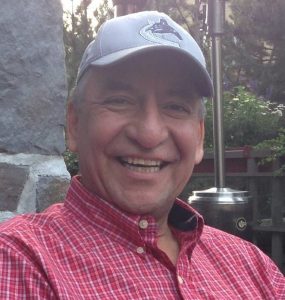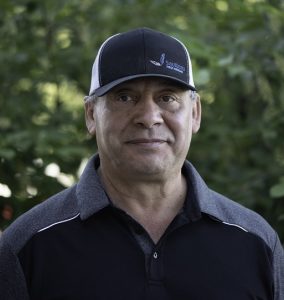
Chief Harley Chingee
NORTHERN BC – The Saulteau First Nation (SFN) has joined the McLeod Lake Indian Band (MLIB) as an equal owner and proponent in a proposed “straddle plant” to be built and operated by on MLIB reserve land near Prince George.
“We are pleased to welcome the Saulteau First Nation into this exciting project,” says MLIB Chief, Harley Chingee. “This project, should it proceed, will provide tremendous economic benefit and well-paying long-term jobs to both of our communities for many decades. Employment and contracting opportunities will not be limited to McLeod Lake and Saulteau, but will extend to other BC First Nations and all British Columbians.”

Chief Rudy Paquette
SFN Chief Rudy Paquette offered the following: “Saulteau is excited about the potential opportunity this investment presents not just to Saulteau but to every community in northeast BC. It is by building strong partnerships, that incorporate the expertise, experience and leadership of each partner that create the conditions to allow a project to shift from the drawing board to reality. This partnership is a great example of local Nations taking the lead, working together to attract investment, jobs and opportunity to northeast BC; ensuring that the resources that are extracted from our lands are bringing the maximum benefit to our region, improving the quality of life for every community in the Peace.”
The proposed multi-billion dollar plant would remove natural gas liquids (“NGLs”) from the T- South gas transmission line, which runs through MLIB’s Kerry Lake #9 Reserve, move NGLs by rail to Prince Rupert, BC, and then export these NGLs to global markets.
Matt Buchholz, CEO representing MLIB and SFN, offered “this is an incredibly fulfilling project to be part of. It addresses two critical aspects that we know are important to both the Province of British Columbia and Canada, as well as to me personally. The first is Indigenous economic reconciliation. This represents one of the largest On-Reserve clean energy projects in Canadian history. The McLeod Lake Indian Band and Saulteau First Nation will derive material economic benefit for many decades as a result of this project. The second is decarbonization in British Columbia. Removing NGLs from this gas stream will achieve the equivalent of removing 22,000 cars per year from the road -it is a carbon negative project. The Clean Energy Major Projects Office has been a key contributor in advancing the project and we are excited to continue to work with them to progress this project to FID.”
MLIB has worked with its industry partner for the past 18 months to progress this project and plans to reach a final investment decision (FID) in 2025. The straddle project is part of the proposed Tse’khene Energy Transition Hub (“TETH”) where a hydrogen production facility is also proposed.
Last October a Memorandum of Understanding was signed between McLeod Lake and the provincial government that encourages the development of TETH and confirms the regulatory and permitting process for the site.
Source: mlib.ca

